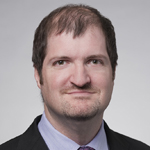This post is excerpted from an original post on the IntraHealth International blog.
 Like the mHealth Summit in Washington, DC in November, the mHealth Africa Summit in Accra, Ghana was well-organized and filled with energy. It was also much smaller. This meant that the conversations were intimate and impassioned, and as expected, much more personal.
Like the mHealth Summit in Washington, DC in November, the mHealth Africa Summit in Accra, Ghana was well-organized and filled with energy. It was also much smaller. This meant that the conversations were intimate and impassioned, and as expected, much more personal.
As my colleague Piers Bocock at Management Sciences for Health pointed out in his blog, this conference offered great examples of country ownership. Like Piers, I, too, learned far more at this inaugural and important conference than I felt able to teach. It also offered me a great opportunity to hear more about the ways mobile phones were already being used by health workers, which I think is key to mHealth’s success, traction, and scalability. Read more »
